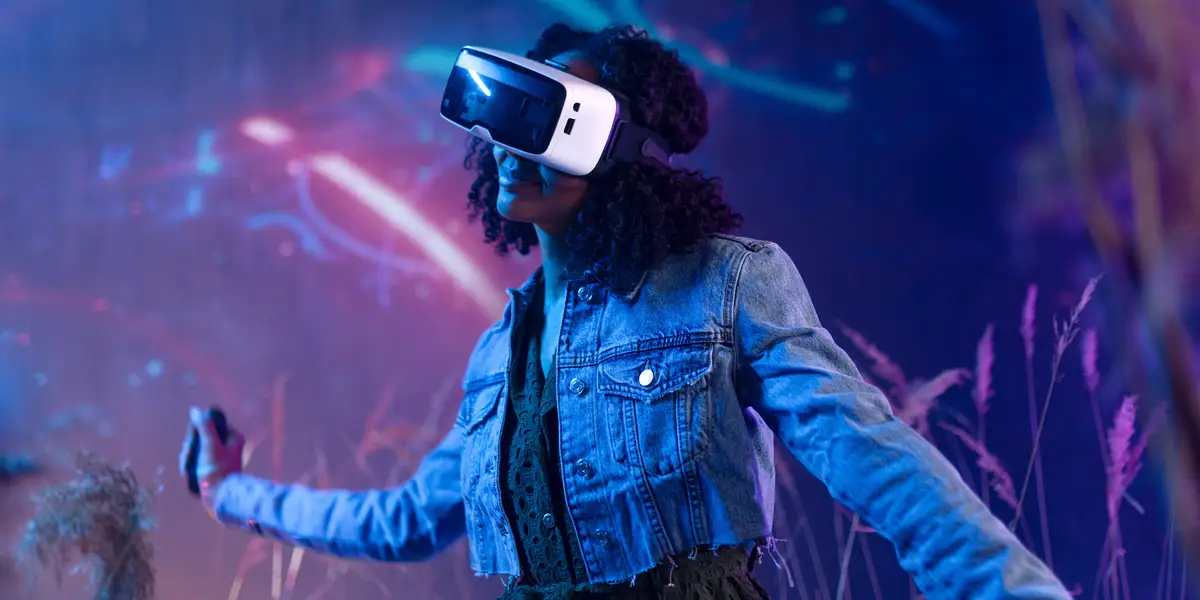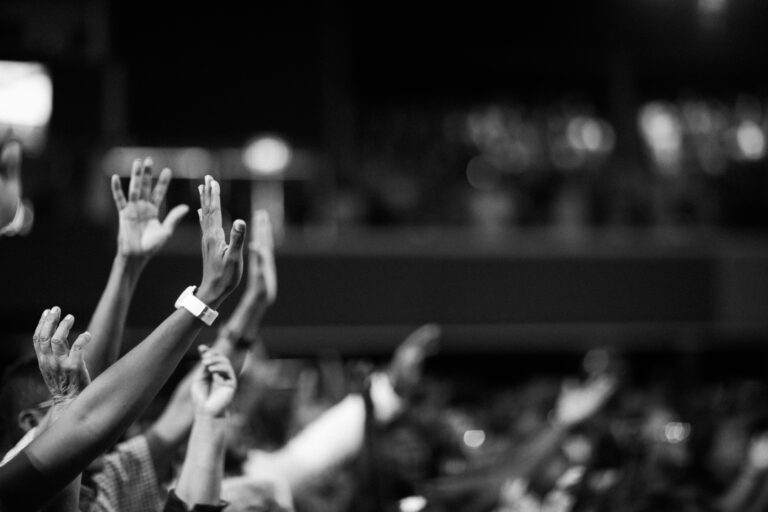In recent years, virtual reality concerts have revolutionized the way we experience live music. Thanks to advancements in VR technology, fans can now enjoy immersive, interactive concerts from the comfort of their own homes. As the world continues to embrace virtual entertainment, virtual reality concerts are rapidly becoming the new frontier for music lovers and artists alike. Whether you’re attending a live show in real-time or exploring a prerecorded virtual performance, these concerts offer an experience unlike any other.
What Are Virtual Reality Concerts?
Virtual reality concerts are live or prerecorded performances where attendees experience the show through a VR headset. By creating a fully immersive 3D environment, these concerts allow fans to feel as if they’re at a real concert, even if they’re halfway across the world. Attendees can interact with the stage, see their favorite artists up close, and sometimes even socialize with other virtual attendees in the crowd.
Using platforms like Oculus, HTC Vive, and Sony’s PlayStation VR, these concerts provide an innovative way for fans to connect with their favorite artists, offering a more personalized and interactive experience than traditional live streams or video recordings.
How Virtual Reality Concerts Are Changing the Music Industry
1. Access to Global Audiences
One of the biggest benefits of virtual reality concerts is their ability to reach global audiences. Fans who may not have the chance to attend live events due to geographic or financial limitations can now experience their favorite artists as if they’re right there in the front row. VR technology eliminates barriers, making concerts more inclusive and accessible than ever before.
2. Enhanced Audience Interaction
In traditional live concerts, fans are often passive participants, confined to their seats or general admission areas. However, virtual reality concerts change this dynamic. These concerts allow attendees to explore different vantage points, interact with virtual environments, and in some cases, engage directly with the performer. VR platforms can also include features like interactive merchandise booths, virtual meet-and-greets, and customizable avatars, giving fans more control over their concert experience.
3. Innovative Stage Designs and Performances
Virtual reality concerts enable artists to push the boundaries of what’s possible on stage. Without the physical limitations of a real venue, musicians can design fantastical stages that change in real-time, incorporate 3D visual effects, or even transport fans to entirely different worlds. These creative possibilities open up a new realm of artistic expression, making each virtual concert a unique experience.
For example, in Travis Scott’s groundbreaking Fortnite concert, the artist performed as a giant avatar, towering over fans as he navigated through surreal, ever-changing landscapes. This kind of creativity is only possible in a virtual environment, offering artists more freedom to experiment with their performances.
The Rise of Virtual Reality Concert Platforms
Several platforms have emerged as key players in the growing world of virtual reality concerts, offering fans access to immersive live music experiences. Here are a few popular platforms that are leading the charge:
- Wave: This platform is known for hosting interactive virtual concerts featuring popular artists like The Weeknd and John Legend. Wave concerts allow fans to customize their avatars, chat with other concertgoers, and experience stunning visual effects that respond to the music in real-time.
- NextVR: Now part of Apple, NextVR offers fans immersive sports and entertainment experiences, including live-streamed concerts. With NextVR, fans can view 360-degree concert footage and feel like they’re part of the action, no matter where the event takes place.
- Oculus Venues: Oculus, one of the leaders in VR technology, offers virtual reality concerts through its Venues app. Fans can attend live events with other VR users, interact with their avatars, and enjoy an immersive experience that mimics the atmosphere of a real concert.
- Sansar: Known for its high-quality virtual environments, Sansar offers users the ability to attend virtual reality concerts with customizable avatars and social interaction features. Musicians like Blondand Imogen Heap have performed in Sansar’s VR spaces, giving fans a chance to connect in a shared virtual world.
Benefits of Virtual Reality Concerts for Artists
For musicians, virtual reality concerts offer several key advantages:
- Increased Revenue Streams: In addition to ticket sales, artists can monetize their virtual performances through exclusive virtual merchandise, digital meet-and-greets, and other premium content. Virtual concerts provide a new source of income, especially for artists who may not be touring as frequently.
- Global Reach Without Travel: By hosting a concert in VR, artists can reach a global audience without the logistical challenges and costs of touring. This can be especially appealing for emerging artists or those with demanding schedules, allowing them to connect with fans worldwide without leaving home.
- Creative Freedom: VR concerts open the door to new levels of creativity. Artists can design virtual stages that would be impossible to recreate in real life, incorporate interactive elements, and perform in dynamic environments that change throughout the show.
The Future of Virtual Reality Concerts
As VR technology continues to evolve, the potential for virtual reality concerts is limitless. We can expect to see even more interactive elements, enhanced social features, and deeper integrations with AR (augmented reality) technology, blurring the lines between physical and virtual experiences. In addition, improvements in VR hardware, such as more comfortable headsets and improved visuals, will make these experiences even more immersive and accessible.
The COVID-19 pandemic accelerated the adoption of virtual events, and while live, in-person concerts will always have a place in the music world, virtual reality concerts are here to stay. They offer a new way to experience live music, combining the excitement of a concert with the convenience of home entertainment.
Conclusion: Embracing the Virtual Concert Revolution
Virtual reality concerts are transforming the way we enjoy live music. With the ability to reach global audiences, create immersive experiences, and push the boundaries of stage performance, VR concerts are paving the way for the future of entertainment. As more artists and platforms embrace this technology, fans can look forward to an exciting new era of music experiences that are more interactive, accessible, and visually captivating than ever before.
Whether you’re a die-hard music fan or simply curious about the future of entertainment, virtual reality concerts offer an exciting glimpse into the possibilities of immersive, tech-driven performances. Ready to experience the future of concerts? Grab your VR headset, and let the show begin!















